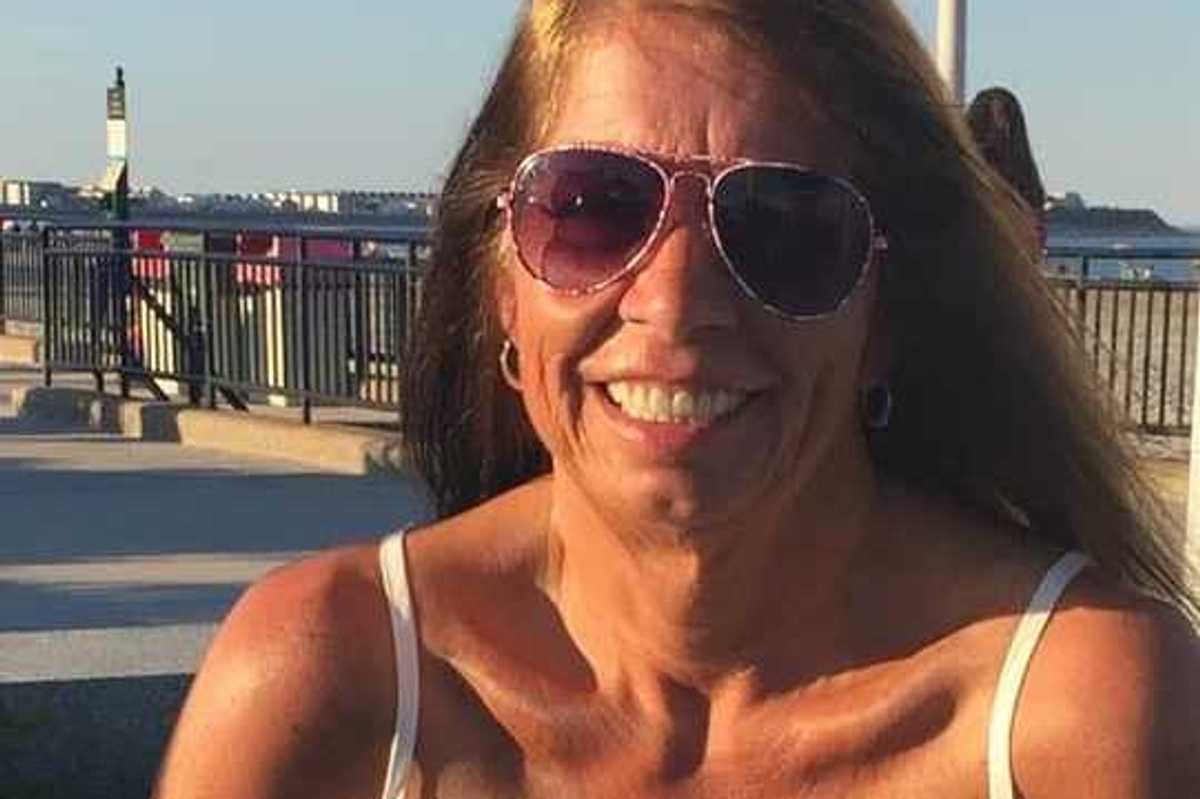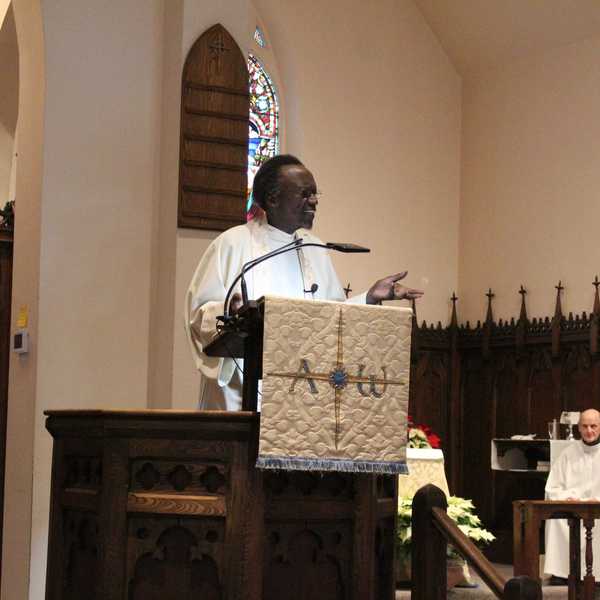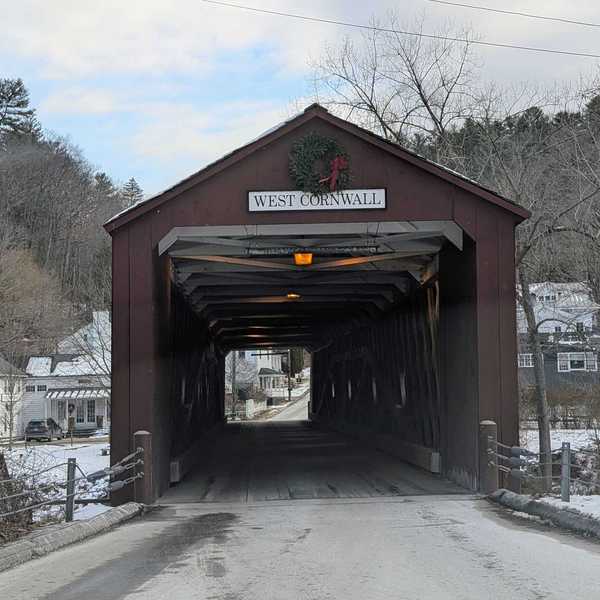Latest News
Robin Lee Roy
Jan 21, 2026
FALLS VILLAGE — Robin Lee Roy, 62, of Zephyrhills, Florida, passed away Jan. 14, 2026.
She was a longtime CNA, serving others with compassion for more than 20 years before retiring from Heartland in Florida.
Robin loved the beach, sunshine, and gardening, and was known for her strength, humor, and unwavering support of those she loved.
She is survived by her daughter, Sierra R. Zinke, and brothers, Darren Roy and Todd Roy.
She was preceded in death by her parents, Sharon Thomkins Roy and Robert Roy, and her brother Nevin Roy.
No services will be held at this time.
Keep ReadingShow less
Marjorie A. Vreeland
Jan 21, 2026
SALISBURY — Marjorie A. Vreeland, 98, passed away peacefully at Noble Horizons, on Jan. 10, 2026.She was surrounded by her two loving children, Richard and Nancy.She was born in Bronxville, New York,on Aug. 9, 1927, to Alice (Meyer) and Joseph Casey, both of whom were deceased by the time she was 14. She attended public schools in the area and graduated from Eastchester High School in Tuckahoe and, in 1946 she graduated from The Wood School of Business in New York City.
At 19 years old, she married Everett W. Vreeland of White Plains, New York and for a few years they lived in Ithaca, New York, where Everett was studying to become a veterinarian at Cornell. After a short stint in Coos Bay, Oregon (Mike couldn’t stand the cloudy, rainy weather!) they moved back east to Middletown, Connecticut for three years where Dr. Vreeland worked for Dr. Pieper’s veterinary practice.In Aug. of 1955, Dr. and Mrs. Vreeland moved to North Kent, Connecticut with their children and started Dr. Vreeland’s Veterinary practice. In Sept. of 1968 Marjorie, or “Mike” as she wished to be called, took a “part-time job” at the South Kent School.She retired from South Kent 23 years later on Sept. 1, 1991.Aside from office help and bookkeeping she was secretary to the Headmaster and also taught Public Speaking and Typing.In other times she worked as an assistant to the Town Clerk in Kent, an office worker and receptionist at Ewald Instruments Corp. and as a volunteer at the Kent Library.
“Mike” loved the sun, sand and water and spent many summers at Westport Point, Massachusetts with the kids and their best friends, the Bauers.She was the consummate hostess, and a wonderful cook.She also appeared in several plays with The Sherman Players and also a show or two on special occasions at The Kent Community House.She took enjoyment from working outdoors doing chores around her home in North Kent.She lived in that house until she sold it and bought a condominium on North Main Street in Kent in May of 2003.She lived in the condo until 2018 after which her light began to fade and her last 8 years were spent comfortably at Noble Horizons.
“Mike” leaves behind her children, Richard (Susan) of Lakeville, her daughter Nancy Rutledge (Jim) of Salisbury; two grandchildren, Chandra Gerrard (Sean) of Litchfield, Matthew (Larissa) of Lakeville; three great grandchildren, Addison, Emilia and Everett, all of Lakeville.
She was predeceased by her beloved granddaughter Caroline in 2020.
All services are private.The Ryan Funeral Home, 255 Main St., Lakeville, is in charge of arrangements.
To offer an online condolence, please visit ryanfhct.com
Keep ReadingShow less
Rafael A. Porro
Jan 21, 2026
SALISBURY -— Rafael A. Porro, 88, of 4 Undermountain Road, passed away Jan. 6, 2026, at Sharon Hospital. Rafael was born on April 19, 1937 in Camaguey, Cuba the son of Jose Rafael Porro and Clemencia Molina de Porro. He graduated from the Englewood School for Boys in Englewood, New Jersey and attended Columbia University School of General Studies. Rafael retired as a law library clerk from the law firm of Curtis, Mallet Prevost in 2002 and came to live in Salisbury to be nearer to his sister, Chany Wells.
Rafael is survived by his sister, Chany Wells, his nephew Conrad Wells (Gillian), and by numerous cousins in North Carolina, Florida, Wyoming, Arizona, Cuba and Canada. He was the eldest of the cousins and acknowledged family historian. He will be greatly missed.
A memorial service will be held at St. John’s Episcopal Church in June. Memorial contributions may be made to Salisbury Volunteer Ambulance Service, St. John’s Episcopal Church in Salisbury and Scoville Memorial Library.
The Kenny Funeral Home has care of arrangements.
Keep ReadingShow less
Roger D. Ovitt
Jan 21, 2026
TORRINGTON — Roger D. Ovitt, 91, of 35 Berry St. Torrington, died peacefully at his home surrounded by his loving family.He was the husband of Barbara (Webb) Ovitt of Torrington.Roger was born June 28, 1934 in Amenia, New York, son of the late Ronald and Edna Lucy (King) Ovitt.
Roger had worked for 36 years as a crusher operator for the former Pfizer Corporation in Canaan. After retiring from Pfizer in 1992, Roger joined his brother, Brian, and began a new career as a house painter. Roger enjoyed this venture with his brother.He was an avid fisherman.Roger also loved to garden.He took great pride in the flowers and vegetables that he raised.
In addition to his wife, Roger is survived by his children;Donald Ovitt and his wife Alissa of Clarksville, Tennessee, Jennifer Godburn and her husband Stephen of Sarasota, Florida, Valerie Bachman and her husband Paul of Torrington, Connecticut, Stephanie Follett of Ashley Falls, Massachusetts, and Nelson Roddy and his wife Mary of Lakeville, Connecticut.Roger is also survived by his sister, Eleanor Hineman of Connecticut, and his three brothers; Robert Ovitt of Southfield, Massachusetts, Brian Ovitt and his wife Alice of Sheffield, Massachusetts, and Gary Ovitt and his wife Cheryl of Sheffield, Massachusetts; his brother-in-law Charlton Webb of Winsted, Connecticut;12 grandchildren and 16 great-grandchildren.
Roger was predeceased by his daughter, Penny Fallon, sister Joy Eichstedt, brothers Ronald, Carlton, Jerry, Wayne, and Raymond Ovitt, his grandson Shawn Bachman, his great-grandsonEli Green, and his step-father Edwin Mansir.
A Celebration of Roger’s Life will be held on Saturday Jan. 24, 2026, at 11 a.m. in the Newkirk-Palmer Funeral Home 118 Main St. North Canaan, CT 06018.
Calling hours will be held at the funeral home on Saturday from 10 a.m. until the service begins at 11 a.m.
Memorial donations in Roger’s memory may be made to Connecticut Chapter of theAlzheimer’s Association 10 Executive Drive Suite 202 Farmington, CT 06032.
Keep ReadingShow less
loading








